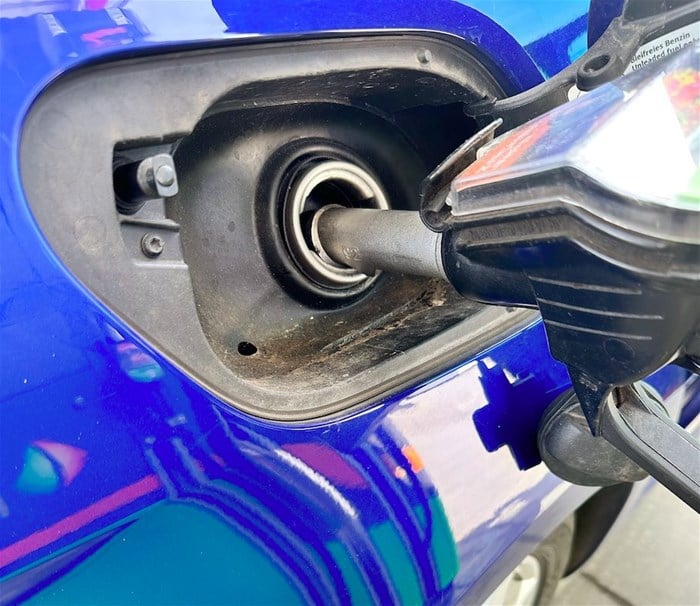After a brief festive reprieve, motorists are in for the first fuel price hike of the year. With a long stretch of year ahead, any further fuel price increases can take its toll on transport budgets for drivers and passengers alike, but is there a way to contain the impact and manage the bill?
The latest national fuel price increase, implemented by the Department of Mineral Resources and Energy this week, sees a litre of 93 and 95 petrol going up 75 cents, and diesel going up between 70 and 73 cents per litre.
Expert tyre manufacturer, Sumitomo Rubber South Africa (SRSA), who produce the popular Dunlop Tyre brand, encourages fitting the right tyre, and continuous monitoring and evaluation of the condition of the tyre, to limit the impact that tyres in poor condition have on fuel consumption levels.
SRSA CEO, Lubin Ozoux said: “South Africa’s fuel prices are adjusted monthly, largely due to international factors, such as crude oil prices, levies, and the Rand/US Dollar exchange rate. All these factors are outside of our control as everyday South Africans, but to make sure we get to school and to work, we need to travel by road. For drivers, this means we do have control over one critical aspect of our vehicles that has a direct impact on our fuel consumption, and that is our vehicle’s tyres. We need to empower ourselves with information on how to purchase the right tyre, and how to inspect a tyre to avoid having issues that would lead to extra fuel consumption.
Here are the features of a tyre and how it helps efficient fuel consumption:
Rolling resistance
- Rolling resistance is the measure of friction between the tyre and the road. The more rolling resistance it has, the more fuel you will need.
- Reducing the friction your tyres have on the road, will in effect, decrease fuel consumption, saving you on your fuel bill. When your tyres need replacement, ask your tyre dealer about tyres that have good rolling resistance features.
- Tyre inflation, tread wear and wheel alignment all affect a tyre’s rolling resistance.
- Regular monthly inspection of your tyres will also increase the chance of spotting any alignment or mechanical wear early, so small problems can be resolved before they become costly.
- Regularly check for punctures, penetrations, cuts, bulges, and irregular tread wear.
- Manufacturers like Dunlop are using advanced rubber compounds and innovative tread patterns to produce tyres with reduced rolling resistance as well as developing lighter weight tyres to improve fuel economy.
Manage inflation
- Under-inflation can increase a car’s fuel consumption by up to 10%.
- Refer to your car manual or the label inside the driver’s door for the correct cold inflation pressures.
- Under-inflated tyres mean the surface area of the tyre touching the road is greater. This will increase rolling resistance and push up your fuel consumption as you will have to increase your acceleration to overcome the rolling resistance, hence using more fuel.
- Check your tyre pressure when you fill up with fuel, or every two weeks. It is best to check tyre pressure when the tyres are cold, preferably in the mornings.
- If you are inflating a tyre more often than usual, it may have a slow puncture. This could be caused by a nail, or a sharp stone lodged in the tyre or a leaking valve. Get it checked by a tyre dealer.
Tread carefully
- Uneven tread creates greater friction, which increases fuel consumption.
- Look for the tread wear indicator built into the main water dispensation grooves. The tread wear indicators are set at 1.6 mm. If the tread wear indicator is level with the remaining tread pattern of a tyre, the tyre must be replaced as the tyres are no longer safe and will not comply with the National Road and Traffic Act No 93 of 1996 regulation 212 tyres.
Wheel alignment and rotation
- Rotating your tyres at regular intervals will reduce the chances of irregular tread wear patterns developing, saving you on fuel consumption and costs.
- Have your tyres rotated at least every 8,000 to 10,000 km/s or at least once a year.
- Incorrect wheel alignment causes a drag on the vehicle, forcing it to work harder and use more fuel. Correctly aligned, well-balanced tyres will increase tyre life and lower fuel consumption.
Drive economically
- Driving sensibly without speeding can decrease fuel consumption by as much as 19%.
- Take it easy on the road, brake smoothly and accelerate gently, whenever possible.
- Erratic driving directly affects your fuel consumption, and diminishes a tyre's tread life.
- Monitor your RPM to see how hard your engine is working and find the sweet spot which should be below 3,000 RPM to save fuel.
Maintain and cover
- Have your vehicle serviced, parts replaced, oil changed, and oil, fuel and air filters replaced at the recommended intervals.
- For peace of mind, take out tyre cover such as Dunlop Sure to ease the cost of replacing damaged tyres – your wallet is working hard enough to cover increased fuel costs. Dunlop Sure is available from Dunlop Zone, Dunlop Commercial, Dunlop Express and Dunlop Container stores at no additional cost to the consumer, when purchasing select tyres.
“As expert tyre manufacturers, we understand how the features of a tyre can contribute to higher fuel consumption. South Africans are feeling the pinch of rising fuel costs. It is in our best interest to learn how tyres in poor condition contribute to fuel consumption and find ways to mitigate this. Speak to your nearest tyre fitment centre, pop into any Dunlop retailer, and have a conversation, even if you are not purchasing new tyres. Ensuring you have the right tyres, in good condition, properly aligned and inflated to the right pressure, keeps you safer and reduces your fuel consumption because your vehicle’s engine won’t have to work as hard,” said Ozoux.
